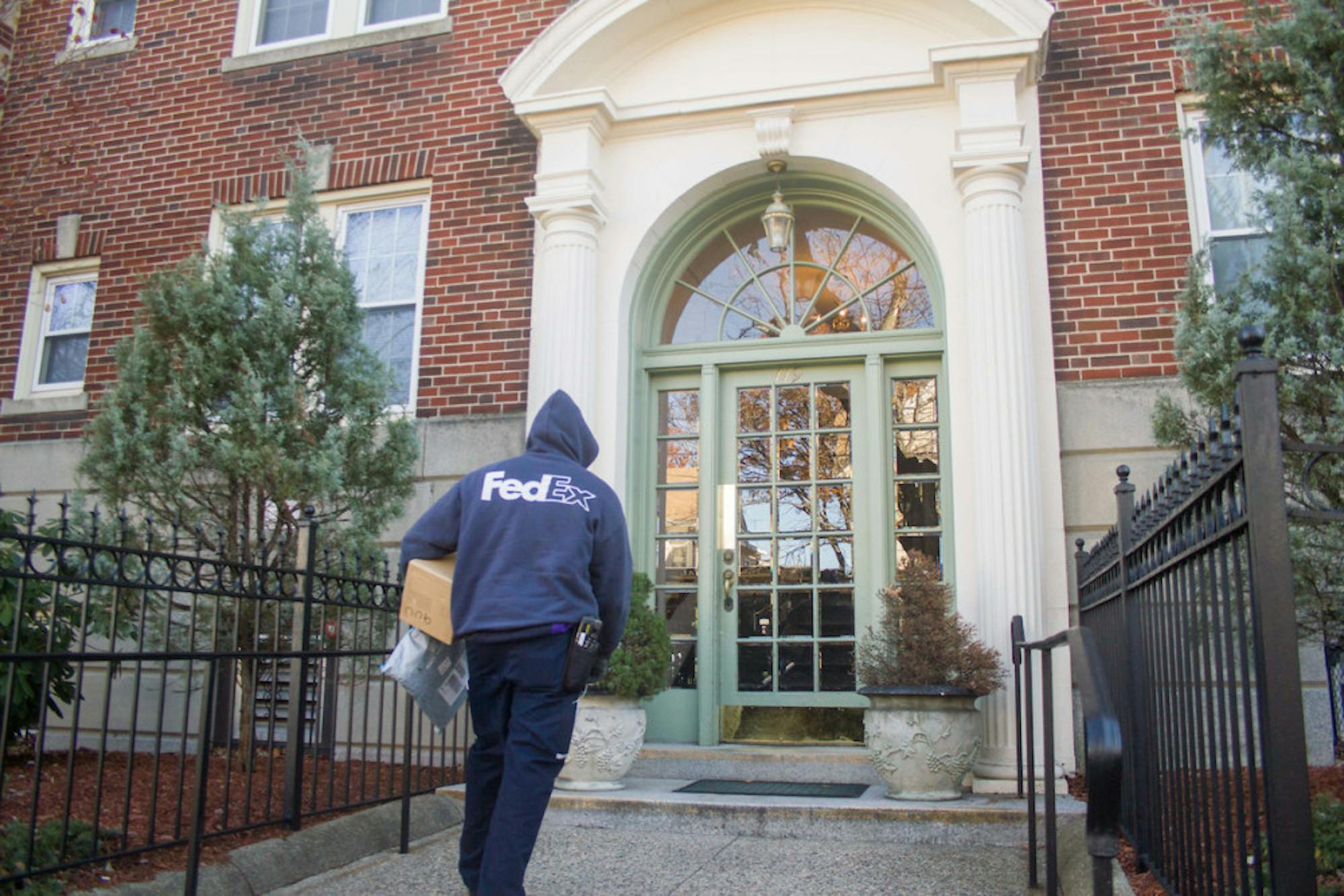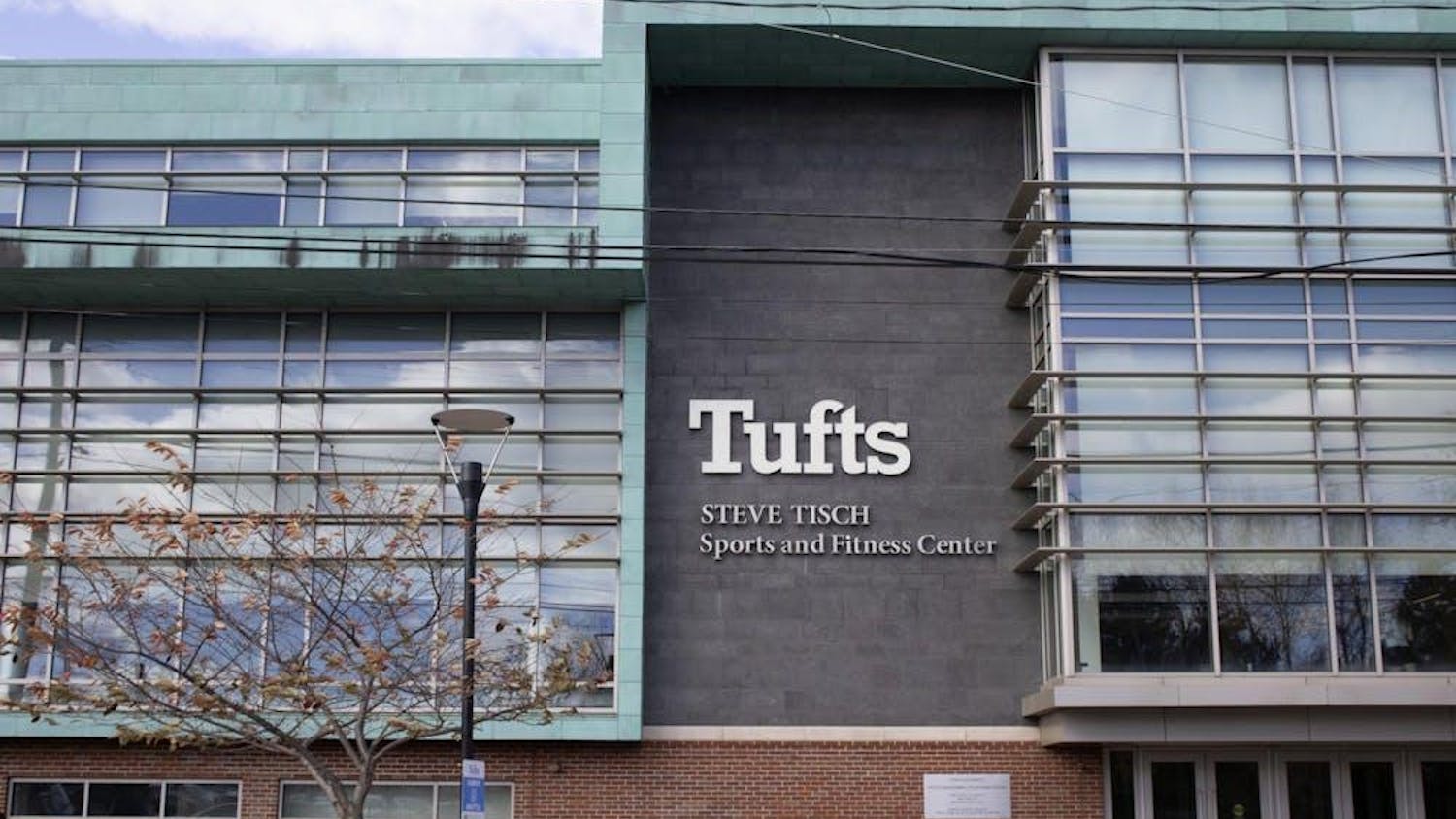Over the past several years, Somerville politicians have repeatedly criticized Tufts University on a number of issues, arguing that the school too often serves its own interests at the city’s expense.
Tufts, according to several of Somerville’s aldermen, has expanded its reach into city neighborhoods, which has threatened housing affordability for local residents and clashed with the city’s own strategic goals. The result has been a clear strain in the relationship between Tufts and its host community.
The dynamic between Tufts and Somerville has always been spotted with typical town-gown issues, such as loud parties, according to public meeting minutes. However, in recent years the Board of Aldermen’s chief complaint about Tufts has shifted from student rowdiness to administrative inadequacies.
According to Somerville Alderman Mark Niedergang, the city’s relationship with the school has always fluctuated, but it has become more strained recently because of concerns over housing and expansions.
“I think there was a deterioration over the last five years, and my sense is that the leadership of Tufts is trying to repair that,” Niedergang said. “I still need to see more concrete stuff -- like housing going up on campus -- before I’ll be mollified.”
Insufficient Housing
Niedergang argues that Tufts does not have enough on-campus housing, and as a result, has contributed to rising rents and a deficit of affordable housing in West Somerville. From Niedergang's perspective, housing policy is one of the largest factors shaping the relationship between the city and Tufts.
Somerville Alderman Katjana Ballantyne, who represents areas of West Somerville adjacent to the Tufts campus, agreed that Tufts' expansions of enrollment have taken housing away from the neighborhood.
Indeed, according to the Fact Book published by the Tufts Office of Institutional Research and Evaluation, there are currently 3,374 beds for undergraduates in the university's on-campus housing system, but there were 5,084 full-timeundergraduates on campus as of the 2015-2016 academic year. Students who do not live on campus and do not commute need to find housing in the surrounding neighborhoods in Medford and West Somerville.
Between 2002 and 2016, Tufts' undergraduate enrollment increased by more than 500 full-time-equivalent students, according to Annual Financial Reports from 2007 and 2016published by Tufts. However, according to the Fact Book, the only major on-campus residential building for undergraduates that has been constructed since the early 1990s is Sophia Gordon Hall, which was built in 2006 and houses 126 people. In other words, the increase in enrollment was not matched by additional housing.
Edward Beuchert, who is a nearby resident and member of the West Somerville Neighborhood Association, believes that the deficit of on-campus housing has forced families and longtime residents to compete for real estate in the neighborhood with investor landlords looking to serve the student market.
"Tufts' idea for dramatically increasing enrollment ignored the housing issues, and it's had a tremendous negative impact on our community," Beuchert said.
Beuchert further argues that Tufts should build new housing and, in the interim, reduce enrollment.
"Sophia Gordon Hall is a wonderful example of a modern sustainable building," he said. "I think we need about six new ones on campus."
For Ballantyne and Niedergang, their concerns about Tufts are in the context of a larger housing affordability problem in Somerville. According to data from the American Community Survey, median gross rents increased by about 43 percent in Somerville between 2006 and 2015. In contrast, rents in Greater Boston as a whole increased by about 25 percent over that time period, and rents nationwide similarly increased by about 26 percent.
Ballantyne and Niedergang argue that Tufts ought to be part of the solution to the city's rising rents and housing needs. Ballantyne cited studies from the Metropolitan Area Planning Council that found that the Greater Boston area will need to add hundreds of thousands of housing units over the next few decades in order to ensure economic health.
Instead of helping to alleviate the city's housing crunch, Niedergang believes that Tufts has not shown a willingness to expand on-campus housing and take pressure off the surrounding neighborhoods.
"I've had conversations with Tufts administrators where they've basically told me that it's not a priority to build housing," Niedergang said.
In response, Tufts Director of Community Relations Barbara Rubel said that the school recognizes the burden that students living off campus create for the community, and noted that the university has been developing plans to increase the amount of on-campus housing.
"We take the issue of housing affordability seriously and are developing plans to house more students on-campus," Rubel told the Daily in an email.
The school's Residential Strategies Working Group (RSWG) has explored short-term renovations that would add new beds to existing residences, as well as the longer-term potential for new construction, according to a letter that Rubel sent to the Board of Aldermen in October.
In particular, according to the letter, the RSWG proposed converting some of the wood-frame houses that Tufts owns near campus to undergraduate housing. The university has not solidified details for that proposal, but Rubel wrote that the project might be initially piloted in Medford rather than Somerville.
In an Oct. 13 Board of Aldermen meeting, Ballantyne warned that the proposal could actually hurt neighbors rather than help, considering that some neighbors felt Tufts had already disregarded community input when the university initially purchased the houses. Ballantyne proposed a resolution to the Board stating opposition to the proposal to convert non-residential buildings.
Niedergang said in an interview with the Daily that he is not opposed to the idea of converting the wood-frame buildings. However, he also does not believe it is an adequate solution to the housing problem, because it would not be a large enough expansion in on-campus housing to make much of a difference for the neighborhood.
“To me it is, at best, a tiny positive step, but not what the city of Somerville has been asking Tufts to do for a long time," Niedergang said.
Somerville began more active oversight of off-campus housing in January 2015, when the Board of Aldermen passed the Ordinance Regulating University Accountability. According to a March 2015 Daily article, the ordinance required the university to report the addresses of all Tufts students who live off-campus to the City of Somerville once per semester.
The text of the ordinance explains that the purpose of the measure is to protect tenants from overcrowding and unsafe living conditions. The City of Somervilledoes not allow more than four unrelated people to live in one dwelling, and the ordinance would allow the city to enforce that law directly.
Beuchert views the ordinance as a way to mitigate the consequences of Tufts' housing policy. By forcing students to look for housing off-campus, he argued, Tufts has created an incentive for landlords to violate the four-person limit. He believes that overcrowding can create quality-of-life issues for neighbors, and the increased revenue for landlords could cause home prices and taxes to go up for other residents.
When the Board of Aldermen initially considered the accountability ordinance, Tufts officials supported the idea of ensuring safety in off-campus apartments, but suggested that the onus be placed on landlords, not on Tufts, to enforce the city's ordinance, according to a Somerville Community Access Television article.
Rubel said that, at this time, Tufts fully complies with the ordinance.
"The intent of these ordinances is to ensure that off-campus housing is properly maintained and complies with local health and safety regulations," Rubel wrote in an email to the Daily.
Planning Disputes
As Tufts has attempted to expand into the surrounding neighborhoods in recent years, Somerville Alderman Katjana Ballantyne argues that the university has not been communicative enough about its plans. She said that a Tufts official told her in 2013 that the university did not plan on expanding into surrounding neighborhoods, a claim that she later found to be inaccurate. Since then, Tufts has considered expansions on multiple occasions, and some residents and politicians have argued that the resulting disagreements with the city show an underlying lack of partnership.
Because of those planning disagreements, Ballantyne proposed an ordinance in March 2014 that would require all major nonprofits in Somerville to submit an Institutional Master Plan (IMP) to the city. According to the website for the Boston Planning and Development Agency, which requires IMPs for all Boston institutions, such master plans typically lay out the institution's development and expansion plans over a set period of time.
According to Ballantyne, that ordinance would allow the city to keep a summary of Tufts' plans on file so that it could anticipate the university's intentions. The goal of the ordinance, she said, is not to hamper Tufts' development plans, but instead to compel the university to report any change in its plans to the city. Ballantyne noted that similar ordinances exist for non-profit institutions in Boston and Cambridge.
Before the ordinance can take effect, the city will need to obtain a Home Rule Petition from the State of Massachusetts overriding the Dover Amendment, which is a state zoning law that grants educational institutions exemptions on certain developmental restrictions. According to State Representative Christine Barber, who represents Somerville and Medford, the petition is in the state legislature, and it is unclear when the legislature will approve it.
Barber said that the ordinance is not specifically directed at Tufts and would apply to other major nonprofits in the city. She agreed with Ballantyne that the intention is to create a dialogue and make the city aware of institutions' plans, not to regulate the institutions.
"The goal is not to say that institutions can't expand, but at least to get a plan in place and know what it will look like," Barber said.
Ultimately, Ballantyne said that the master plan ordinance is needed so that the city can facilitate a conversation with Tufts on its plans. She said that the previous development disagreements, and the general lack of communication with the city, indicate that Tufts has not been willing to have those sorts of conversations with the city.
"What’s best for our community is having a dialogue with the largest nonprofit [in Somerville] so we can anticipate what the impacts of their growth or their changes will have on our community," Ballantyne said.
Meanwhile, Tufts administrators have made clear their concerns with the master plan ordinance. Rubel has argued that the ordinance would cut back on Tufts' autonomy under the Dover Amendment, which she believes could hamper its efforts to engage with the local community.
"We believe that the interests of both our communities and Tufts University are better served by the current process of working together and communicating our plans with the City and the local residents," Rubel told the Daily in an email.
According to Rubel, Tufts does not currently have a traditional institutional master plan, but the school makes an effort to communicate its plans and discuss concerns with the city government and with neighboring residents.
In recent years, Tufts has made two major attempts to expand into areas beyond the campus, and each of those attempts faced backlash from the City of Somerville, ultimately resulting in the cancellation of the university's plans.
In March 2014, the City of Somerville dropped negotiations with Tufts to redevelop the site of the Powder House Community School, a shuttered elementary school on Broadway in Somerville, according to a press release on the city website.
According to the press release, the city and Tufts reached an impasse because Tufts did not intend to develop the site for 15 years or more, conflicting with the Somerville community's desire for the site to begin development sooner.
Ballantyne said that the university seemed to be under the impression that it could ignore the requirement that development begin sooner, which was stipulated by the original request for proposal for the site. Thus, she argues that Tufts' plans ran contrary to the community's clear intentions for the site.
Rubel said that Tufts ultimately chose to drop the Powder House School project after it became clear that the cost would be prohibitive, and the university was forced to prioritize other projects.
Less than a year later, Tufts and the city were once again divided when the university attempted to purchase a 40-unit apartment building at 119 College Avenue. The university planned to house graduate students, faculty and staff in the building, according to Rubel.
According to Ballantyne, Somerville aldermen found out that Tufts planned to buy the building when they received a letter in January 2015 from MassDevelopment, a state agency, asking for their opinions on the plan.
Ballantyne said the city immediately opposed Tufts' plan to buy the building because it conflicted with SomerVision, the city master plan which calls for additional affordable housing. In fact, in a Board of Aldermen meeting on Jan. 22, 2015, Ballantyne said that Tufts acted as though it was not aware of the contents of the city's master plan.
At that Board of Aldermen meeting, Somerville Mayor Joe Curtatone expressed the sentiments of multiple Aldermen. He said that he was disappointed to hear about Tufts' attempted purchase, and he believed that it was important for Tufts to set hard goals and coordinate better with the city.
“They need to have a plan for the future," Curtatone said in the Aldermen meeting. "They need to work with the city to build housing on campus.”
Ballantyne told the Daily that the attempted College Ave. purchase indicated that the university was focused one-sidedly on its own interests with little regard for the city's master plan and affordable housing goals.
"I understand that Tufts wants to look out for what works best for them," Ballantyne said. "But in my role as an elected [official], I have to look at what’s good for the community."
Rubel said the owners of 119 College Ave. initially came to Tufts suggesting that the school buy the building. Additionally, she said that current tenants would have been allowed to stay in their apartments, and their rents would not have changed. Ultimately, Tufts chose not to buy the building.
"While it didn’t work out, we felt it was worthwhile to seriously review the prospect," Rubel told the Daily in an email.
Jim Bossi, a member of the West Somerville Neighborhood Association who has lived in his house in Somerville for 25 years, said that Tufts' apparent lack of an institutional master plan and its disagreements with the city over planning issues are major concerns for him.
"Today there is no constant communication between Tufts and Somerville and matters are handled as they arise," Bossi told the Daily in an email.
Payments to the City
As a non-profit organization, Tufts does not pay property taxes to the City of Somerville for most of its buildings. Instead, Tufts pays the city a total of $275,000 every year in Payments in Lieu of Taxes (PILOT), according to the city's Fiscal Year 2017 budget. Several members of the Board of Aldermen have said that this amount is not nearly enough to offset the university's impact on the city.
“I don’t think that Tufts steps up to the plate the way they should, considering the impact they have on this city," Alderman Maryann Heuston said during a Board of Aldermen meeting on May 28, 2015.
Niedergang explained that PILOT payments are negotiated by Mayor Curtatone's office, though the aldermen have expressed that Tufts should be giving more. Curtatone's office declined to comment to the Daily.
Currently, Tufts pays the City of Somerville significantly less in PILOT payments than it pays the City of Boston for its Health Sciences Campus, even though the university's property in Somerville is worth more than its property in Boston, according to records from both cities.
According to an October 2013 Somerville Times article, the current PILOT agreement with Tufts, which reflected a $100,000 increase from the previous PILOT agreement, began in 2013 and will expire in 2018. If Tufts were required to pay taxes, its nontaxable property would have netted the city $6.64 million in Fiscal Year (FY) 2014, according to a city document produced at the Board of Aldermen's request.
In contrast, Tufts currently pays $556,000 per year in PILOT to Boston, which is approximately double its payments to Somerville, according to a document from the City of Boston. Boston determines its requests for PILOT payments based on how much the nonprofits would have paid if their property was taxable, and Tufts would have owed $4.91 million in taxes in FY 2016. Tufts is currently one of the few universities in Boston that pays 100 percent of the PILOT payments requested by the city, according to the city's document.
Niedergang said that the aldermen's frustration over PILOT payments stems largely from that difference between Tufts' deal with Somerville and its deal with Boston. He described it as a matter of fairness.
“If you’re wealthy and you’re using city services and you’re taking up housing, then you pay to help the city meet the needs of its residents," Niedergang said.
According to Rubel, Somerville'sPILOT payments are different from Boston's because Boston uses a formula that applies to all nonprofits, whereas the current partnership agreement between Tufts and Somerville has a negotiated sum of PILOT payments. Rubel added that Medford and Somerville receive the same amount from Tufts.
In the May 28, 2015 Board of Aldermen meeting, city officials voiced their concerns by voting not to create a Consolidated Gift Account that would automatically receive some of Tufts' gifts to the city for cultural, recreational or educational purposes and to rather vote to accept every gift that Tufts offers in order to prompt a conversation about Tufts' financial commitment to the city. The aldermen said that they will always accept those contributions, but that they want an opportunity to review Tufts' payments to the city on an annual basis.
"I think it's more important for transparency for us to see this money ... and I would like to be reminded each year about how little Tufts is giving the city," Alderman Matthew McLaughlin said at the meeting.
Niedergang said that, while the issue of PILOT payments is an irritant, he does not view it as a major determinant of the relationship between the university and the city, especially when compared to housing and other issues.
Frustration over Tufts' payments to the city is not a new issue — seven years ago, State Representative Denise Provost argued that Tufts should pay local property taxes, according to a September 2009 Daily article.
Nonetheless, Niedergang, McLaughlin and other officials have clearly expressed frustration at the current level of PILOT payments. That frustration is shared by some local residents, including Bossi and Beuchert, both of whom agree that Tufts is not offsetting its impact on the city and is not paying enough for the city services that it uses.
Citizenship vs. Profit Motive
In addition to standard partnership issues between Tufts and Somerville, the city has also criticized the university's internal decisions.
The most significant recent conflict of that nature was on April 9, 2015, when multiple aldermen condemned Tufts for allowing several janitors to be laid off by contractor DTZ Custodial Services. The Somerville Board of Aldermen passed a resolution calling for layoffs to be minimized, and several aldermen openly accused Tufts of acting greedily, according to minutes from that meeting.
A similar resolution was passed that month by the Medford City Council, with Medford officials expressing similar criticisms of Tufts, according to an April 2015 Daily article.
At the Somerville Aldermen meeting, McLaughlin said that, as a graduate of Tufts and as the son of a janitor, he was upset by the university's actions. He said that Tufts has behaved like a for-profit corporation, and he promised not to forget Tufts' treatment of its janitors, especially considering the services that the city offers to Tufts.
"I'm very tired of hearing billionaires cry poverty in this city," McLaughlin said at the meeting. "At least [business owners] pay taxes."
Similarly, in an Oct. 26 meeting, the Board of Aldermen passed another resolution supporting the janitors in light of the janitors' successful strike vote. Aldermen continued to protest Tufts' actions, with Alderman Dennis Sullivan criticizing Tufts at the meeting for simultaneously turning its back on workers while preaching social justice.
According to an Oct. 27, 2016 Daily article, Tufts officials have argued that, because the university has outsourced its janitorial services to contractor Cushman & Wakefield (C&W) Services, it is not legally a part of the negotiations between C&W Services and the union.
Niedergang does not view Tufts' treatment of janitors as a major facet of the relationship with the city, but the situation still frustrates him and other aldermen.
“Ultimately, the city can’t tell Tufts how to treat its employees,” he said. “I don’t think it’s a strategic issue in the relationship, but it is certainly an irritant.”
Moving Forward
In spite of criticisms of Tufts, city officials and residents have expressed appreciation for some of the positive impacts of Tufts on Somerville, and it is clear that they would like a strong relationship between the university and the city.
Niedergang and his daughter both graduated from Tufts. He said that the school contributes to the community through holding its annual Kids Day, volunteering in public schools and offering other community programs. Additionally, he recognized Rubel for her participation in many city institutions.
Beuchert expressed similar views and noted his current participation as a community volunteer in Tufts radio station WMFO. He said that, as a neighbor, he has had many positive interactions with Tufts students, and he feels that many Tufts students who reside in low-quality off-campus housing are victims of circumstance.
Rubel, whose office is responsible for Tufts' relationship with its host communities, said that the school also wants to maintain a positive relationship with Somerville.
"Tufts values its relationships with Somerville and all of its host communities," she told the Daily in an email. "We work hard to be a good neighbor and hope that our presence in Somerville benefits the economy and culture of the City."
Niedergang said that he has recently noticed a conscious effort by Tufts to improve its relationship with the City of Somerville, but that he would still like to see concrete action.
“I hope that Tufts will follow its efforts to engage more with actually doing stuff, like paying us more money in the next PILOT agreement that’s signed and building some housing on campus," he said.
Tufts-Somerville relationship strained by issues of housing, social responsibility






